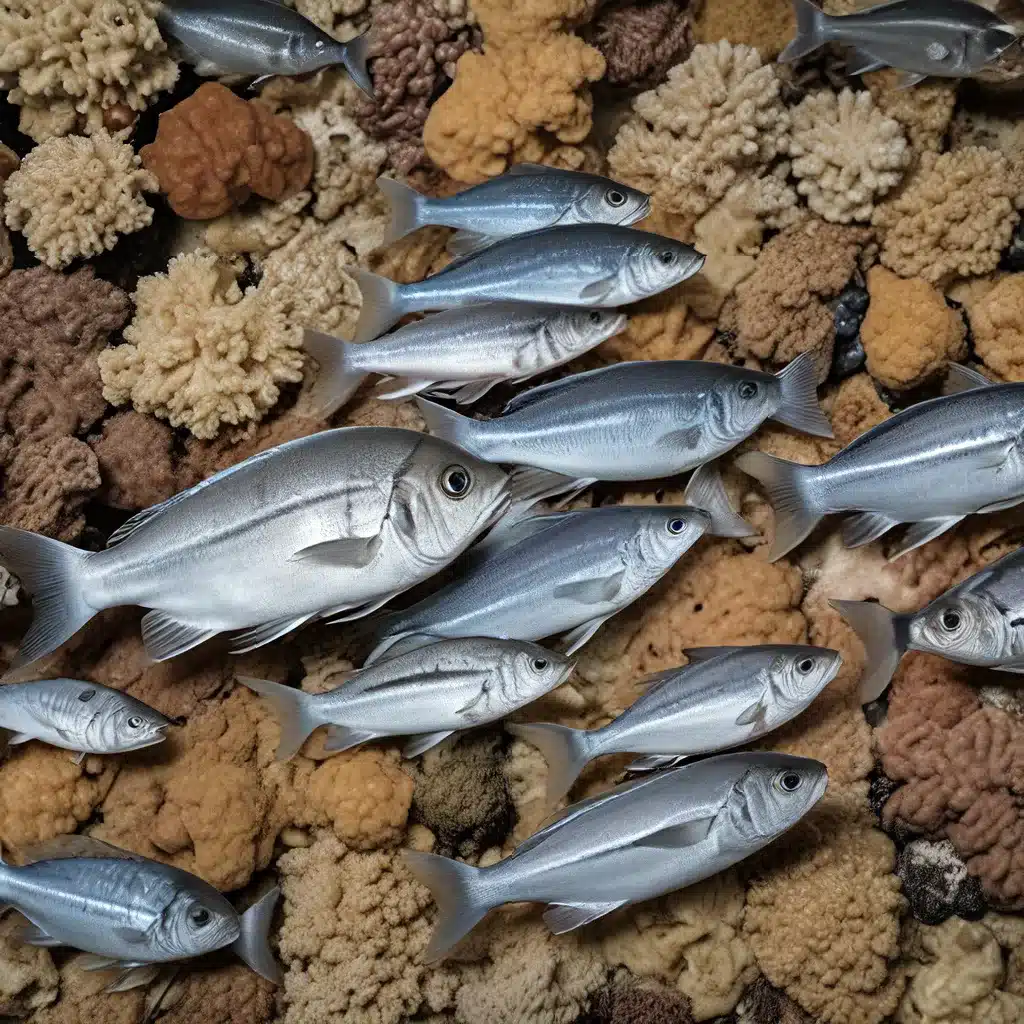
Navigating the Complexities of Feeding Marine Aquarium Inhabitants
Maintaining a thriving marine aquarium is a delicate balance, and the dietary needs of its inhabitants are a critical component. From vibrant coral polyps to mesmerizing schooling fish, each species requires specialized care and feeding strategies to ensure their long-term health and happiness. In this comprehensive guide, we’ll dive deep into the intricacies of meeting the nutritional requirements of some of the most delicate marine fish species, equipping you with the knowledge to foster a flourishing underwater ecosystem.
Understanding the Unique Feeding Habits of Marine Fish
Marine fish have evolved a diverse array of feeding behaviors and adaptations to thrive in their aquatic environments. Unlike their freshwater counterparts, many marine species are highly specialized, requiring a meticulous approach to their dietary needs. Some key considerations when it comes to feeding marine fish include:
-
Predatory Versus Herbivorous Diets: Marine ecosystems are home to a wide range of predatory and herbivorous fish species, each with specific dietary requirements. Predatory fish, such as lionfish and Nassau groupers, thrive on a diet of smaller fish and crustaceans, while herbivorous species, like yellow tang and convict tang, rely primarily on algae and aquatic plants.
-
Feeding Behaviors: Marine fish exhibit a wide range of feeding behaviors, from active predators that chase and ambush their prey to grazers that meticulously pick at algae and detritus. Understanding these behaviors is crucial in determining the appropriate feeding methods and schedules for your aquarium inhabitants.
-
Nutritional Requirements: Different marine fish species have unique nutritional needs, with some requiring higher protein content, while others thrive on a diet rich in vitamins, minerals, and fatty acids. Ensuring that your fish receive a balanced and species-appropriate diet is essential for their overall health and longevity.
Crafting a Diverse and Nutritious Diet
Catering to the diverse dietary requirements of marine fish can be a complex task, but with the right knowledge and approach, you can provide a well-rounded and sustainable feeding regimen. Here are some key strategies to consider:
-
Varied Food Sources: Incorporating a variety of food items, such as frozen, freeze-dried, or live foods, can help ensure that your marine fish receive a comprehensive range of nutrients. This might include brine shrimp, mysis shrimp, spirulina flakes, and chopped seafood, among other options.
-
Targeted Feeding Schedules: Establish a consistent feeding schedule that caters to the specific needs of your marine fish species. Some may require multiple small meals throughout the day, while others may thrive on a single, larger feeding. Paying attention to your fish’s feeding behavior can help you determine the optimal schedule.
-
Supplemental Feeding: Depending on the species and their individual needs, you may need to provide additional supplements, such as calcium, iodine, or vitamins, to support their growth, coloration, and overall health. Consult with experienced aquarists or reference guides to determine the appropriate supplements for your specific marine fish.
-
Aquascaping and Water Quality: The aquascaping and water quality of your marine aquarium can also play a significant role in the feeding and overall well-being of your fish. Incorporating live rock, algae, and other natural elements can provide foraging opportunities and enhance the nutritional value of the aquarium environment.
Addressing Feeding Challenges for Delicate Marine Species
While some marine fish species are relatively hardy and adaptable when it comes to feeding, others can be quite delicate and finicky. These species may require specialized care and feeding strategies to ensure their long-term survival and health. Let’s explore some common challenges and solutions:
-
Picky Eaters: Certain marine fish, such as flame angels and fairy wrasses, are known for their highly selective feeding habits. Gradually introducing new food items, using feeding tongs or target feeding, and providing a diverse array of options can help encourage these picky eaters to broaden their palate.
-
Sensitive to Water Quality: Some delicate marine fish, like Indian vagabond butterflyfishes, are particularly sensitive to fluctuations in water parameters, such as pH, temperature, and dissolved oxygen. Maintaining pristine water quality through regular testing, water changes, and effective filtration is crucial for the health and well-being of these species.
-
Territorial Feeding Behavior: Certain marine fish, such as golden angelfish, can be highly territorial and aggressive during feeding times. Implementing strategies like target feeding, using multiple feeding stations, or separating territorial species can help mitigate these challenges and ensure that all inhabitants have access to the necessary nutrition.
-
Specialized Feeding Adaptations: Some marine fish, like queen angelfish, have unique feeding adaptations, such as specialized teeth or mouth structures, that require tailored feeding approaches. Understanding these adaptations and providing appropriate food items can make all the difference in meeting the dietary needs of these delicate species.
By addressing these feeding challenges and implementing strategic feeding practices, you can create a thriving and harmonious marine aquarium where even the most delicate species can thrive.
Conclusion: Unlocking the Secrets of Marine Fish Nutrition
Mastering the art of feeding marine fish is essential for creating a sustainable and visually stunning aquarium ecosystem. By understanding the unique dietary requirements, feeding behaviors, and common challenges associated with delicate marine species, you can provide the necessary care and nutrition to support their long-term health and vibrancy.
Remember, a diverse and balanced diet, coupled with a focus on water quality and aquascaping, is the key to unlocking the full potential of your marine aquarium. By closely monitoring your fish’s feeding habits and adjusting your approach as needed, you can foster a captivating underwater oasis that will inspire and delight aquarium enthusiasts and hobbyists alike.
Explore the world of King Aquarium to discover more valuable resources and expert guidance on crafting the perfect marine aquarium environment for your delicate inhabitants.

